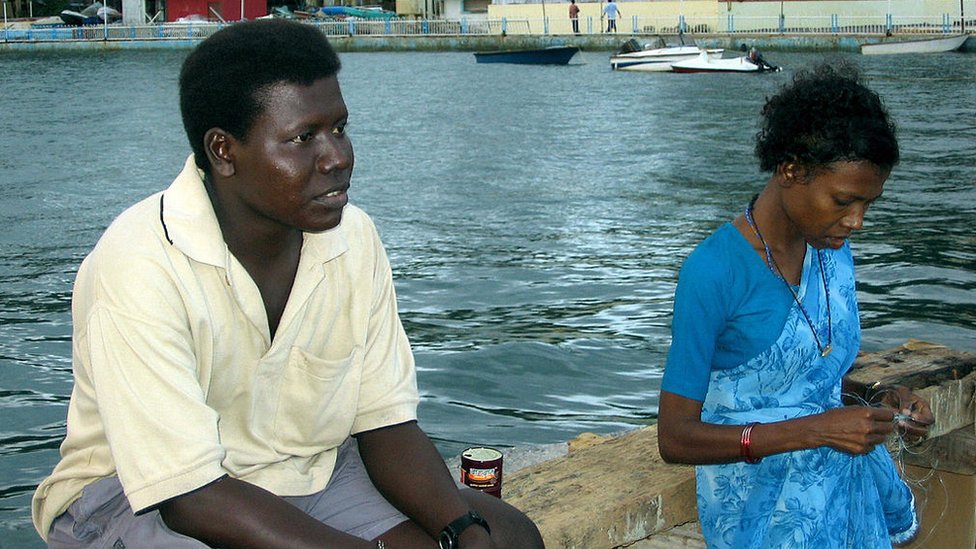By Soutik Biswas
India correspondent

image copyrightGetty Images
A remote tribe in India’s Andamans archipelago has recorded its first cases of coronavirus.
Four members of the Greater Andamanese tribe have tested positive for Covid-19, a health official told the BBC.
Two of them have been admitted to hospital, while the remaining two have been quarantined in a care centre.
The Greater Andamanese are believed to have a population of 53, and live on one of the 37 populated islands in the coral reef-fringed archipelago.
The eastern archipelago of Andamans and Nicobar has recorded 2,985 Covid-19 cases and 41 deaths since its first infection was detected in early June.
The first Covid-19 cases among the endangered Greater Andamanese tribe were detected last week when all its 53 members were tested for the infection at Strait Island, near the capital Port Blair, where they live, senior health official Dr Avijit Roy told the BBC.
Health and emergency workers rode the choppy sea water in boats to the island last week to test the tribe in one day.
“They were all very cooperative,” Dr Roy said.
Many of the tribe’s members travel between Port Blair and their secluded island, and may have contracted the infection in the process, he said. A few tribe members even do petty jobs in the city.
Dr Roy said that making sure the pandemic does not spread among the archipelago’s other indigenous tribes was now a main priority.
“We are keeping a close watch on movements and mass testing some of the tribes,” he said.
The Andamans is home to five vulnerable tribes: the Jarawas, North Sentinelese, Great Andamanese, Onge and Shompen.
shot dead with bows and arrows as he attempted to land there.
According to London-based Survival International, which works for tribal peoples’ rights, the Greater Andamanese numbered more than 5,000 when the British colonised the islands in the 1850s. Suffering from the long term impact of the diseases introduced by the occupation, their numbers dwindled.
“It is extremely alarming that members of the Great Andamanese tribe tested positive for Covid-19. They will be all too aware of the devastating impact of epidemics that have decimated their people,” Sophie Grigg, senior researcher for the group, said.
In 2010, Boa Senior, the last speaker of one of the Great Andamanese languages died at the age of about 85. The islands are often called an “anthropologist’s dream” and are one of the most linguistically diverse areas of the world.
Meanwhile, the 476-odd members of the nomadic Jarawa tribe, who live in a vast forest reserve between the south and middle Andamans, have been already moved and isolated to the farthest part of the jungle after the outbreak of the contagion, officials said.
The reason is that officials want to minimise any risk of contact between the tribe members who have little immunity and people travelling for essential and emergency work through the Andaman Trunk Road (ATR) which cuts through the forest reserve. The trunk road, built in the 1970s, is the only road connecting 400 villages from Baratang to Diglipur.
A team of health workers and doctors is being sent to test more than 115 members of the Ongi tribe who live on one island, Dr Roy said. Members of the Shompen tribe will also be tested.
Emergency and health workers sailing to the islands where the indigenous tribespeople live had to clear rapid Covid-19 tests before sailing, and were quarantined for a week on their return.
Dr Roy said Covid-19 cases have been detected on10 islands in the archipelago so far.
The Andamans has two hospitals, three health centres and 10 care centres for treating Covid-19 patients. They also have one of the highest testing rates in India.
Tribes in Brazil and Peru have been hit by Covid-19. More than 280 indigenous people have died with coronavirus across Brazil’s Amazon region.